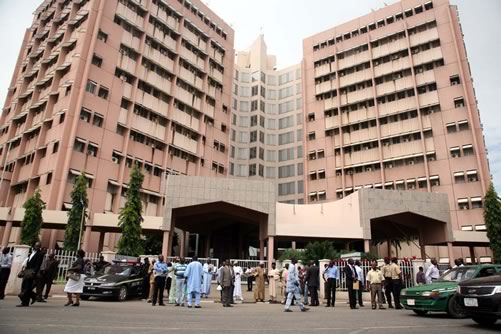On the 2nd of January, 2021, the Federal Government announced the guidelines for the extension of the eased lockdown (phase 3) by one month following the rising cases of coronavirus disease in the country.
The eased lockdown has since seen businesses reopen nationwide albeit cautiously and in line with social distancing and other government protective recommendations implemented. The most heralded of these recommendations, the use of nose masks in public places and social distancing, have been fairly adhered to although, in recent times, it would seem that many Nigerians are moving on from the initial dread that sparked full compliance with these directives in the heat of the pandemic last year.
As with many parts of Nigeria, life has gradually returned to normal in the FCT. On Tuesday, 2nd March 2021, the National Primary Health Care Development Agency announced the arrival of the expected COVAX Astrazeneca/Oxford COVID-19 vaccines, which today has seen Nigeria record 1,096,727 vaccinations, with the FCT recording 49,192 vaccinations as of April 18th 2021. Although vaccine apathy is still reasonably high, residents are warming up to the idea of getting the required shots to protect themselves and others against the virus.
READ: FCT Minister presents N299.96 billion as 2021 statutory budget
The FCT is typically a ‘Civil Service’ domain but this is not to say that there aren’t other businesses being conducted in the region. Nairametrics took a tour around the Abuja metropolis to get a general feel and assessment of business reopening in the region.
The first points of call were the banks which have maintained strict compliance with the enforcement of the use of nose mask and the admission of a limited number of people into the banking hall at a time. As with several other banks, at the Guarantee Trust Bank branch at AYA junction in Asokoro, customers are required to obtain a ticket from the bank security with a number written on it. Customers are admitted into the banking hall in order of the number on their tickets.
One customer, Mary, expressed displeasure at the turn of events, citing the discomfort and the amount of time expended in carrying out hitherto simple transactions. “It used to be uncomfortable at first, but since it for our safety, we have no choice but to adhere to the protocol,” she stated.
READ: Nigeria’s COVID-19 curve is flattening at a rapid pace.
In the area of transportation, ride-hailing services which had until last year enjoyed immense patronage, are also just beginning to pick up. Emmanuel a driver for a ride-hailing service confirmed that business has picked up compared to the first phase of the lockdown easing. He, however, lamented the effect that rising inflation was having on his daily income from the executive cab business.
“Honestly, I am happy that businesses are picking up but we still need support. The rising prices of things are not reflected in the fare that our passengers are charged. We have to service the car, pay for fuel, and other needs. Although we are happy to be back, we feel things can be better,” he affirmed.
Public transport, on the other hand, has long moved on from the days of enforcement of a limited number of passengers in vehicles and the compulsory masking up of all passengers. Neither the drivers nor the conductors of the buses boarded during this investigation were particular about social distancing or the use of masks. Many safety-conscious passengers were, however, observed to still use their masks while onboard.
Bus fares have largely remained the same as they were pre-covid. For instance, the fare for a trip from Karu Junction to Berger still ranges from N150-N200, depending on the time of the day.
Restaurants and food outlets including fast food grottos are also businesses that enjoyed immense patronage pre-covid but were forced to shut down or at best, streamline their services to strictly take-outs and online orders in the aftermath of the breakout of the pandemic. A trip to a KFC outlet at Area 11 in Garki, and a number of other food courts revealed that customers are not allowed entry without a mask. However, once inside, the mask could be set aside to place orders and eat meals.
In Gwarinpa, at the Rooftop Puzzles Restaurant and Bar, customers are required to sanitise their hands and wear a mask before entry, but once inside, are allowed to sit anywhere and be attended to by staff kitted in nose masks.
READ: CAC sets 3-hour time line for company registration in 2021
To conclude, life has pretty much returned to normal in the FCT and residents are gradually putting aside the pains of the lockdown period as they go about their daily lives and business concerns in the typical resilient fashion that Nigerians have come to be known for.
On the Legislative side of things, the FCT Minister has recently concluded plans with the FEC to boost infrastructure development in the city, with Nairametrics recently reporting that the Federal Economic Council has approved the sum of N82 billion for the completion and rehabilitation of infrastructure projects in the Federal Capital Territory. The projects range from the Federal Secretariat to the expansion of the outer Southern Expressway amongst many others.














